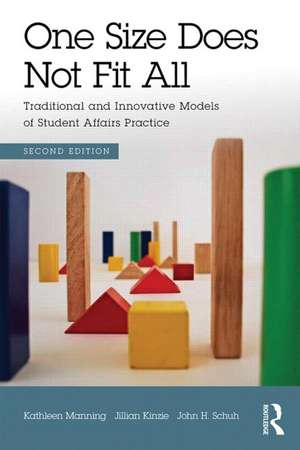Women and Gender in Modern Latin America: Historical Sources and Interpretations
Editat de Pamela S. Murrayen Limba Engleză Paperback – 12 mar 2014
Covering major developments in the region from the bitter wars of Spanish American independence (1810-1825) through the turn of the twenty-first century, this collection examines the expectations, responsibilities, and limitations that have confronted women in their varied roles. The book explores:
- The nature and impact of feminist movements
- Women’s role in economic modernization and the gendered division of labor
- Women’s contributions to 20th-century nationalism and social revolutions
- Changing gender roles and relations within marriage and the family
- The impact of modern birth control methods and changing sexual mores
Whether for a course specifically on women in Latin America, or as an addition to a Modern Latin America survey course, Women and Gender in Modern Latin America provides a comprehensive overview of the experiences of women and workings of gender over time across a vast and diverse region.
| Toate formatele și edițiile | Preț | Express |
|---|---|---|
| Paperback (1) | 538.61 lei 6-8 săpt. | |
| Taylor & Francis – 12 mar 2014 | 538.61 lei 6-8 săpt. | |
| Hardback (1) | 993.02 lei 6-8 săpt. | |
| Taylor & Francis – 12 mar 2014 | 993.02 lei 6-8 săpt. |
Preț: 538.61 lei
Preț vechi: 633.65 lei
-15% Nou
Puncte Express: 808
Preț estimativ în valută:
103.08€ • 107.22$ • 85.10£
103.08€ • 107.22$ • 85.10£
Carte tipărită la comandă
Livrare economică 14-28 aprilie
Preluare comenzi: 021 569.72.76
Specificații
ISBN-13: 9780415894555
ISBN-10: 0415894557
Pagini: 384
Ilustrații: 11 black & white tables, 3 black & white halftones
Dimensiuni: 174 x 246 x 28 mm
Greutate: 0.73 kg
Ediția:1
Editura: Taylor & Francis
Colecția Routledge
Locul publicării:Oxford, United Kingdom
ISBN-10: 0415894557
Pagini: 384
Ilustrații: 11 black & white tables, 3 black & white halftones
Dimensiuni: 174 x 246 x 28 mm
Greutate: 0.73 kg
Ediția:1
Editura: Taylor & Francis
Colecția Routledge
Locul publicării:Oxford, United Kingdom
Public țintă
UndergraduateCuprins
Introduction
Chapter 1: Engendering Independence, 1810-1820s
Chapter 2: Women and Aspects of Everyday Life, 1820s-c. 1870
Chapter 3: Gender and Nation, 1830s-c. 1880
Chapter 4: Rise of Feminism, 1880s-c.1934
Chapter 5: Economic Modernization and the Gendered Division of Labor, c. 1900-1970
Chapter 6: Women in the Age of Nationalism and Social Revolution, 1930s-c. 1980
Chapter 7: Engendering Reaction and Rights Struggles, 1970s-c. 1990
Chapter 8: Sex, Marriage, and Family within Changing Societies, 1960s-c. 2000
Chapter 9: Women and Gender in an Era of Globalization, c. 1980-2000s
Chapter 1: Engendering Independence, 1810-1820s
Chapter 2: Women and Aspects of Everyday Life, 1820s-c. 1870
Chapter 3: Gender and Nation, 1830s-c. 1880
Chapter 4: Rise of Feminism, 1880s-c.1934
Chapter 5: Economic Modernization and the Gendered Division of Labor, c. 1900-1970
Chapter 6: Women in the Age of Nationalism and Social Revolution, 1930s-c. 1980
Chapter 7: Engendering Reaction and Rights Struggles, 1970s-c. 1990
Chapter 8: Sex, Marriage, and Family within Changing Societies, 1960s-c. 2000
Chapter 9: Women and Gender in an Era of Globalization, c. 1980-2000s
Notă biografică
Pamela S. Murray is Professor of History at the University of Alabama at Birmingham. She is the author of For Glory and Bolívar: The Remarkable Life of Manuela Sáenz and Dreams of Development: Colombia’s National School of Mines and its Engineers, 1887-1970.
Recenzii
"I used [Women and Gender in Modern Latin America] for the first time this semester for my own Women and Gender in Latin America class, and it changed my life as a teacher of that class. It's probably the best reader I've ever used, and it made teaching that class so much more fun and rewarding."
– Margaret Chowning, University of California, Berkeley
An exciting new anthology, this engaging classroom resource goes far beyond previous collections by showing that women had a history that was not apart from men but related to them, especially in power relationships. Insurgents, workers, reformers, feminists, revolutionaries, mothers, and grandmothers, across the social and ethnic spectrum, speak in their own words.
– Angela Thompson, author of Las otras guerras de Mexico: Epidemias, enfermedades y salud publica en Guanajuato, Mexico, 1810-1867
In Women and Gender in Modern Latin America, Pamela Murray skilfully weaves together primary and secondary sources to provide us with a sorely needed and highly innovative text. Along with familiar and fundamental readings, the text brings to life exciting new voices that challenge conventional stereotypes. The excellent selection of readings and inventive format will not only encourage lively and stimulating discussion but also foster critical thinking in the classroom. I, for one, am looking forward to using this unique text in my course.
– Francie Chassen-Lopez, author of From Liberal to Revolutionary Oaxaca: The View from the South, Mexico 1867-1911
Those of us who teach the history of women and gender in Latin America have needed this book for a long time. Pamela Murray has paired engaging and accessible primary materials with supporting secondary literature representing both the classical writings and the latest historiography in the field. I look forward to using it in my classes.
– Christine Ehrick, author of The Shield of the Weak: Feminism and the State in Uruguay, 1903-1933
– Margaret Chowning, University of California, Berkeley
An exciting new anthology, this engaging classroom resource goes far beyond previous collections by showing that women had a history that was not apart from men but related to them, especially in power relationships. Insurgents, workers, reformers, feminists, revolutionaries, mothers, and grandmothers, across the social and ethnic spectrum, speak in their own words.
– Angela Thompson, author of Las otras guerras de Mexico: Epidemias, enfermedades y salud publica en Guanajuato, Mexico, 1810-1867
In Women and Gender in Modern Latin America, Pamela Murray skilfully weaves together primary and secondary sources to provide us with a sorely needed and highly innovative text. Along with familiar and fundamental readings, the text brings to life exciting new voices that challenge conventional stereotypes. The excellent selection of readings and inventive format will not only encourage lively and stimulating discussion but also foster critical thinking in the classroom. I, for one, am looking forward to using this unique text in my course.
– Francie Chassen-Lopez, author of From Liberal to Revolutionary Oaxaca: The View from the South, Mexico 1867-1911
Those of us who teach the history of women and gender in Latin America have needed this book for a long time. Pamela Murray has paired engaging and accessible primary materials with supporting secondary literature representing both the classical writings and the latest historiography in the field. I look forward to using it in my classes.
– Christine Ehrick, author of The Shield of the Weak: Feminism and the State in Uruguay, 1903-1933
Descriere
In Latin American history, women have not only played key roles within the family and society, but have long been active participants in political and economic life. The explosion of research over the last fifteen years testifies to how much we still have to learn about their experiences. Women and Gender in Modern Latin America brings together selections from recent scholarship with excerpts from an exciting array of primary sources, many translated into English for the first time, to bring the story of women’s involvement in modern Latin American history up to date.
Whether for a course specifically on women in Latin America, or as an addition to a Modern Latin America survey course, Women and Gender in Modern Latin America provides a comprehensive overview of the experiences of women and workings of gender over time across a vast and diverse region.
Whether for a course specifically on women in Latin America, or as an addition to a Modern Latin America survey course, Women and Gender in Modern Latin America provides a comprehensive overview of the experiences of women and workings of gender over time across a vast and diverse region.
















